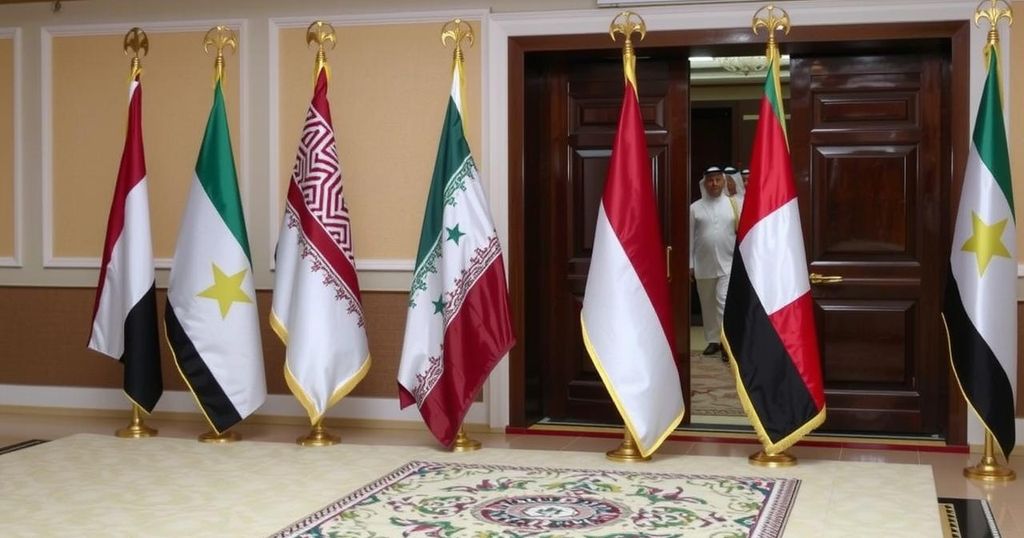Syria’s Foreign Minister Asaad al-Shaibani will visit Qatar, the UAE, and Jordan to seek investments for reconstruction following years of conflict. This marks a significant diplomatic effort to enhance regional partnerships and stabilize the economy under Syria’s new government.
On January 4, 2025, Syria’s new Foreign Minister, Asaad al-Shaibani, announced plans for official visits to Qatar, the United Arab Emirates, and Jordan, following a diplomatic mission to Saudi Arabia. The Syrian government aims to solicit investment from affluent Gulf nations to aid in the reconstruction of infrastructure and rejuvenation of its economy, which has been severely impacted by over a decade of conflict. Shaibani emphasized that these visits are intended to promote stability, security, and economic recovery, while also fostering significant partnerships with these regional neighbors. His diplomatic agenda signifies a proactive approach by the new administration in engaging with the international community to restore Syria’s economic viability.
The context surrounding these visits is rooted in Syria’s ongoing recovery efforts after a prolonged civil war that has devastated its economy and infrastructure. The new leadership, composed of the Islamist group Hayat Tahrir al-Sham which recently ousted President Bashar al-Assad, seeks constructive relationships with Gulf countries. These nations, particularly Saudi Arabia, Qatar, and the UAE, play a pivotal role due to their financial resources and influence in the region. The new government’s outreach indicates a shift in foreign relations, aiming for collaboration and investment in post-war reconstruction.
In conclusion, Asaad al-Shaibani’s upcoming visits to Qatar, the UAE, and Jordan symbolize Syria’s strategic push to revitalize economic ties with Gulf states. This diplomatic endeavor is critical for attracting investment necessary for recovery and stability in Syria. The active engagement of the new administration in the region underscores its commitment to building a better future for the war-torn nation. As articulated by the foreign minister, these bilateral relationships are vital for achieving sustainable development and enhanced security.
Original Source: www.bssnews.net






